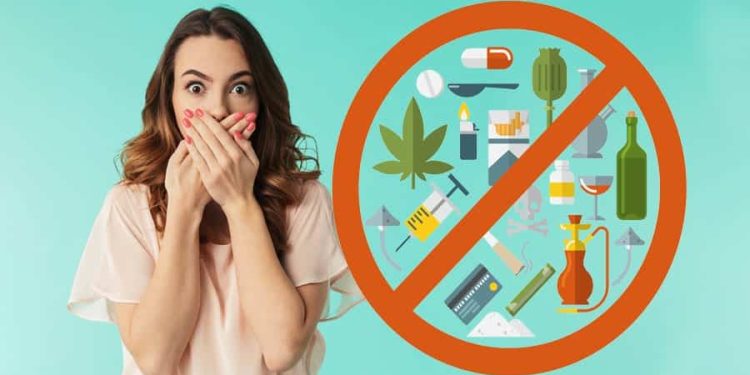Are you struggling with addiction? If so, know that you're not alone. Millions of people fight the same battle, contributing to a chaotic or disorganized lifestyle.
But with the right tips and resources, such as; the houses of LA sober living, you can get sober and stay sober for good.
This blog post will help you with tips on achieving and maintaining sobriety in the long run.
So read on for advice from experts and fellow addicts alike. You can do this!
How Hard Is It To Be Sober
It's hard to get into addiction recovery without staying sober. Sadly, at least one relapse is relatively rare. Without addiction treatment, addicts can expect 80% recurrence despite a lack of help.
Even if treated, it is possible to reach 50 to 50%. The result is a difficult one to stop. It takes effort to achieve success in life.
The problem is defined as “relapse prevention” for a reason. You are trying to stop something that will keep coming back.
What if you are one of the people who want to stay sober but have had a difficult time in the past? Here are some things you can do:
Tips For Staying Sober
You made an essential step towards sobriety. Getting support and friends from your loved ones can help keep them going more quickly. Here are some more tips for staying sober:
#1 Develop Healthy Relationships
Like many addicts or alcohol addicts, your closest relation might have been to your drug choice.
You may not have friends whom you have been able to contact unless you bought a prescription drug from someone else or used some illegal drugs.
You might find out your previous toxic relationships weren't just toxic but unhealthy.
So, it's not just drinking and drug abuse that can cause a problem in your life. Some people close to you may contribute to relapses of underlying symptoms.
Some people develop a co-dependent relationship with a caregiver who has an overreliance on them.
#2 Get Aftercare!
You deserve much gratitude for quitting, but it shouldn't be too late. If someone is in treatment facilities, check for aftercare services.
If you do not live in any treatment centers, you can participate in the local recovery process community, such as AA or NA meetings or other social activities.
Such mutual support groups may include one or both persons. It defines aftercare as “subsequent treatment and maintenance.”
It is time to start caring for yourself. Eventually, you have to keep it. Consider your sobriety a great sport.
#3 Keep Cool And Calm
Generally, those who are addicted to alcohol have problems coping. It can cause serious health risks and affect your long-term recovery when ignored.
Anger can be a normal and natural emotion, and the way we handle this emotion will help you recover.
For people suffering from substance use disorder, it just seems like they don't understand how to manage anger.
Talk to your therapist, other medical professionals, or sponsor about ways to control your anger without harming yourself or others.
#4 Build a Support Network
Make sure you have good friends and family to support you, even when the friendships haven't changed much in recent years.
Take a family counselor or therapist for help — it'll be helpful for others with broader personal problems.
Give yourself sober friends. They can invite you in for a party or a marriage. Also, keep in contact with your sponsors and call if you feel nervous or uncomfortable.
#5 Take Care Of Your Mental Health
Mental illness can impact your substance addiction. This could cause you to use it when it seems you should not. Often mental disorders and alcohol abuse are associated.
20 million plus Americans have been diagnosed with substance abuse disorder. Approximately 80 percent have both a psychotic disorder and mental illness.
Until you become sober, you could face the consequences of active addiction in your lifetime.
#6 Make Some Changes
You want to be safe for the long term and avoid any of the old habits. Sometimes it's helpful for someone who has just recently started recovering to make some change.
It's not a problem if there's a change. To live a drug-free life, some immediate changes are necessary.
You don't want to stay sober with your old friends; instead, make some new friends who are sober.
#7 Deal With Past Mistakes
Alcohol and drug recovery patients usually leave much pain and discomfort behind. When you experience substance abuse problems, you can feel guilt or shame and have trouble dealing with it; it is normal.
Shame is believing negatively about yourself. Guilt is one of the negative feelings of shame about your previous behaviors.
Many recovering addicts cannot cope with their addictions because of their drug addiction. When the emotion is too intense, it can hinder the substance abuse treatment recovery journey.
If you want to maintain lasting sobriety, this feeling is toxic, and relapse begins long if ignored.
#8 Get Support
Spending more time in support and planning activities for the family members helps develop healthy lifestyle habits.
A doctor should also be asked for assistance. An addictions expert may help with the difficulties in achieving healthy balance and sobriety. Therapists can provide advice and help develop better mental health and coping skills.
#9 Recognize Relapse Warning Signs
Sometimes you get into trouble because your relapse does not seem to be a warning.
Relapse usually occurs long after a person reaches an addiction and involves two stages: emotional relapses, mental relapses, and physical recovery.
Signs that tells you may be at risk for relapse include:
- Feeling like you're not progressing in your recovery
- Being more isolated and alone
- Feeling more stressed out
- Having financial problems or increasing debt
- Returning to old behaviors or thinking patterns
- Contact people from your past who are using drugs
- Having more difficulty coping with emotions
- Feeling like you're not worthy of sobriety
#10 Practice Healthy Living
Chronic misuse and addiction may be detrimental to your health, and you will have to prioritize self-care and have the strength to stay sober.
Critical elements for healthy living are: eating a balanced diet, regular exercise, and getting enough sleep.
You should also find ways to relax and reduce stress in your life.
FAQs
How Do I Keep Myself Sober?
The best way to sobreity is to find a support group or 12-step program.
Also, make sure you have good friends and family to support you.
Take care of your mental health, reinvent the same routine and practice healthy living.
Finally, recognize relapse warning signs and get help if necessary.
Is It Possible To Stay Sober?
A structured routine helps people reach other goals in life, whether short-term, like being at school, or longer-term.
Staying sober can be one of the biggest challenges, but still doable.
What Are The Most Effective Treatments For Addiction?
The most effective treatments for addiction are:
- Cognitive-behavioral therapy (CBT)
- Contingency management (CM)
- Motivational enhancement therapy (MET)
- Community reinforcement approach plus vouchers (CRA+)
- 12-step facilitation therapy (12-SFT)
- Motivational interviewing (MI)
- Psychodynamic therapy (PDT)
- Eye Movement Desensitization and Reprocessing (EMDR)
- Matrix Model (MM)
- Therapeutic community (TC)
Why Is Staying Sober Important?
Staying sober is crucial because it helps you stay healthy and avoid relapses.
It also allows you to focus on other goals in life and maintain healthy relationships.
Conclusion
There are many reasons why staying sober is important. Maintaining control of your emotions and behavior is essential, and sobriety helps you do that.
Additionally, sobriety can protect you from making risky decisions, like intoxicated driving.
If you're struggling with addiction, seek help from a therapist or other professional for a sober lifestyle.
























